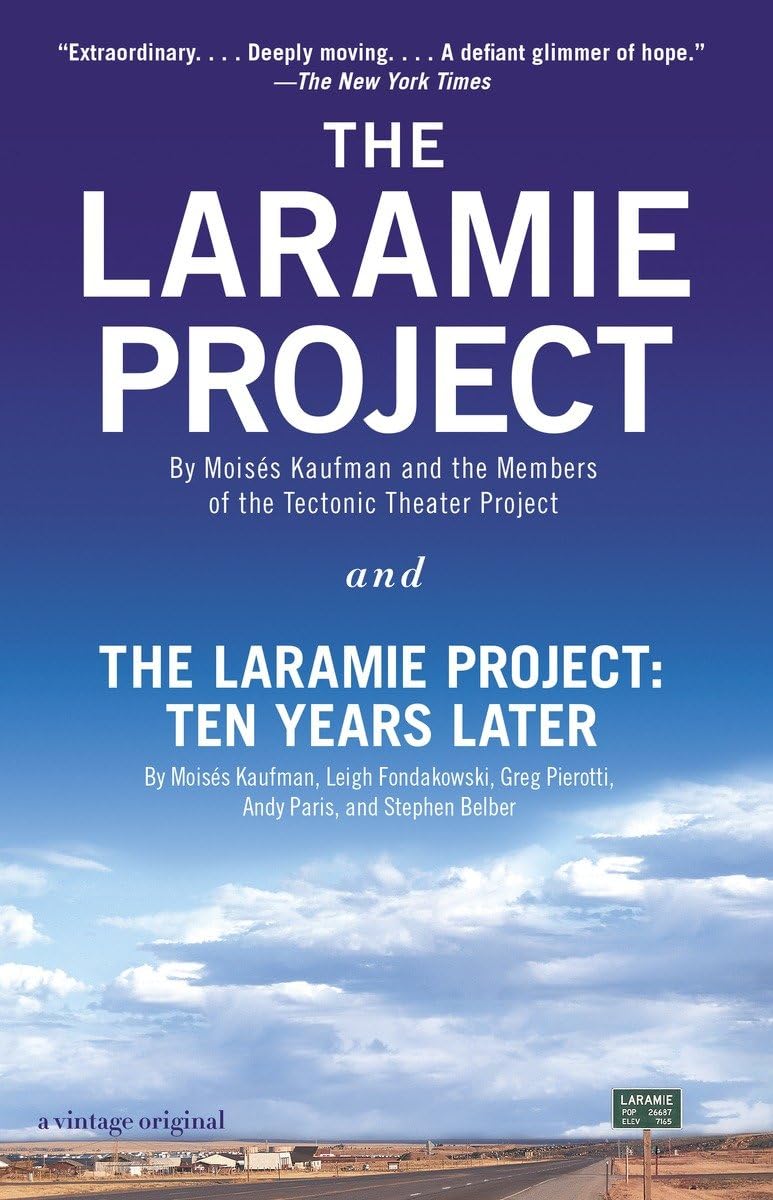
Two classic plays in a single volume: One of the most-performed theater pieces in America about the brutal murder of Matthew Shepard and the town in which it happened, joined by a moving sequel to the original play. Buy on Amazon →
Let’s imagine this play as a prism, refracting the light of a single tragic event into a spectrum of human experiences. “The Laramie Project” isn’t just a play; it’s a mirror held up to American society, forcing us to confront our own reflections in the faces of Laramie’s residents.
Picture a small town in Wyoming, where the wind whispers secrets and the vast sky seems to hold judgment. Here, in Laramie, the playwright Moises Kaufman and his team unravel a tapestry of voices, each thread a life touched by the brutal murder of Matthew Shepard. The play doesn’t just tell a story; it immerses you in a community grappling with its identity and values.
As someone who grew up in a small town, I felt the familiar weight of community expectations and unspoken rules while reading this play. The characters’ struggles with acceptance and prejudice resonated deeply, reminding me of the complexities of belonging in tight-knit communities.
“The Laramie Project” emerged at the turn of the millennium, a time when LGBTQ+ rights were gaining visibility but still faced significant opposition. The play became a catalyst for discussions about hate crimes and homophobia, influencing both theatrical practices and social discourse.
Kaufman’s work intersects theater, journalism, and sociology. The verbatim theater technique employed here isn’t just artistic choice; it’s a form of qualitative research, offering insights into how communities process trauma and how narratives shape our understanding of events.
The genius of “The Laramie Project” lies in its refusal to provide easy answers. Instead, it reveals the myriad ways humans rationalize, empathize, and struggle with their own beliefs when confronted with horrific acts. It challenges us to consider: how do our words and silences shape the environments that allow hate to thrive?
Reading this play is an emotional rollercoaster. The raw honesty of the interviewees – from heart-wrenching grief to uncomfortable prejudice – creates a visceral experience. I found myself alternately in despair, angry, and hopeful.
While “The Laramie Project” might invite comparisons to documentary theater pieces like “The Exonerated,” its approach is unique. Unlike works that focus solely on the victims or perpetrators of crimes, this play expands its lens to encompass an entire community, reminiscent of Thornton Wilder’s “Our Town,” but with a sharp edge of reality that cuts deep.
So overall, to me “The Laramie Project” is more than a play – it’s a landmark work that challenges the boundaries of theater and social commentary. Kaufman has created a living document of a pivotal moment in American history, one that continues to resonate and provoke crucial discussions about identity, acceptance, and the stories we tell about ourselves and our communities.

